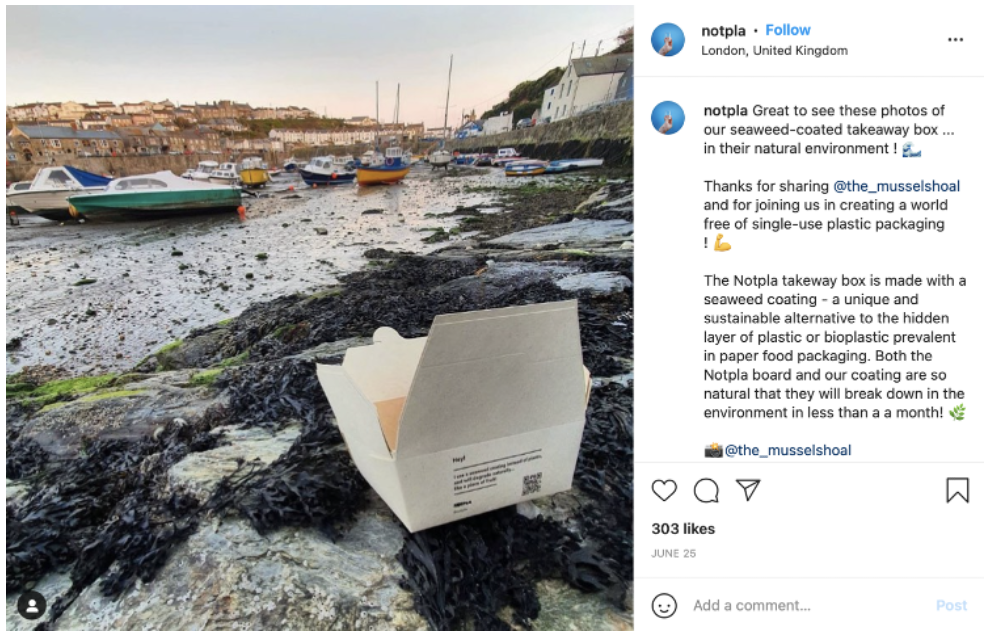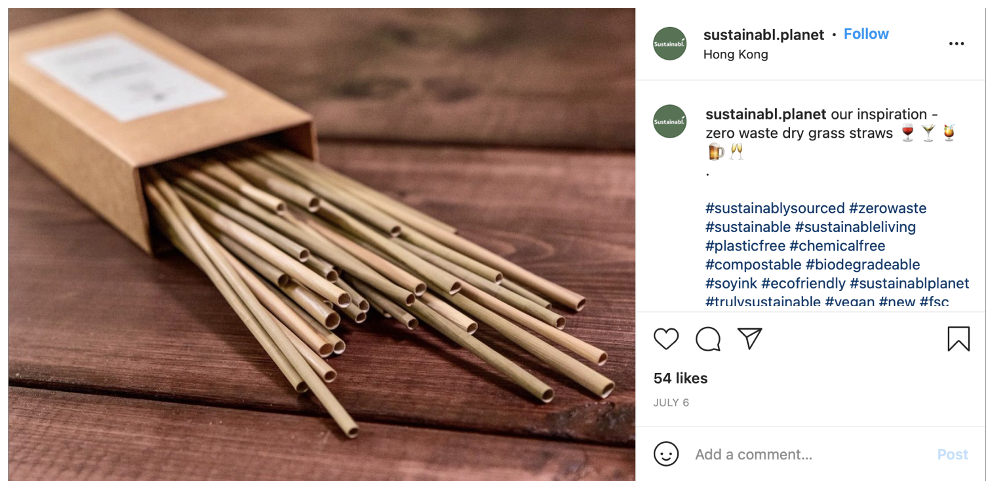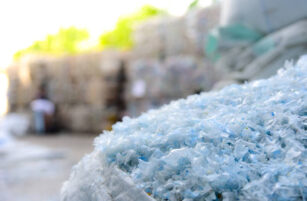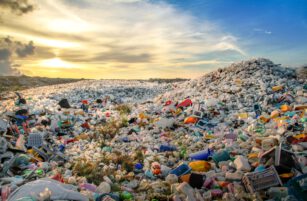
- On-the-go food outlets are gearing up for an increase in post-COVID commerce, and sustainable packaging is back on the agenda.
- Recent consumer surveys point to large public support for composable packaging over traditional plastics.
- But do compostables really represent a challenge to traditional packaging plastics?
Sustainable Packaging is Back on the Agenda
As we move into a post-pandemic world, the food and packaging industries are gearing up for an increase in post-COVID commerce. The combined effect of increased out-of-home consumption, as well as continued strength in the ecommerce market, means the packaging sector has never been hotter.
However, whilst sustainability has been at the heart of many multinational brands for some time, consumers increasingly expect online retailers and smaller food outlets to also use sustainable packaging options.

Due to the perceived environmental benefits, compostables are seeing a significant uptake within a range of market segments, from local delis and catering services to large multinational brands and major supermarket chains.
However, do compostables really represent a challenge to plastic-based packaging and their future demand growth?
Sustainable Transformations within Ecommerce and Traditional Retail
With restrictions on movement and restaurant closures, food delivery services have boomed during the pandemic, and so has household waste.
Looking to tackle the waste issue, Just Eat, a leading brand in UK food delivery in partnership with over 30,000 restaurants, has recently expanded its use of compostable packaging, to include food sachets and compostable takeaway boxes made with seaweed. Just Eat and its packaging start-up partner, Notpla, are currently assessing initial trial results and aim to roll their seaweed boxes out across the UK and our other markets.

Major supermarket chains are also taking compostables seriously, with supermarket chain Lidl GB recently announcing plans to replace all single-use fruit and vegetable packaging with compostable alternatives. Lidl GB will begin transitioning to the new bags from January 2022 and estimates the move will eliminate the use of around 275 metric tonnes of conventional soft plastic packaging.
In Spain, supermarket chain Carrefour already uses compostable and biodegradable bags in the vegetable aisle.
PepsiCo announced in September that its Frito-Lay division will introduce a compostable bag for its ‘Off The Eaten Path’ brand. The new compostable bags are currently available at Whole Foods Market and select retailers and are part of PepsiCo’s investments in new food packaging technology and its pep+ (PepsiCo Positive) sustainability transformation.
Compostable packaging substitutions are not just limited to the food sector though. Stationery manufacturer BIC – synonymous with disposable plastic pens – has already transitioned to 49.3% reusable, recyclable, or compostable plastic in packaging.
Food Waste Packaging Innovation
The increase in demand for compostable packaging from retailers has also meant that packaging companies all over the globe are creating new and innovative compostable designs, and in many cases incorporating natural bio-based materials.
Recent examples include the following:
- Hong Kong-based, Sustainabl, creates compostable, biodegradable, toxin free and vegan packaging solutions. After developing a drinking straw using lepironia bamboo grass, designers are now expanding into takeaway cups and food and beverage containers using sugarcane bagasse.

- Malaysian retailer, The Food Purveyor (TFP), has launched several initiatives using different materials to potentially replace plastics, including banana leaves, paper, and cardboard. Currently, it’s testing out compostable meat trays and fish trays across some of its stores.
- In a return to paper, US potato retailer, Tasteful Selections, partnered with PaperLock to adopt its plastic-free, recyclable, and compostable paper packaging.
- Indonesian paper-based packaging brand, Foopak, is working with brands to help substitute single-use plastics and food packaging with “plastic-free” recyclable and compostable options. Its Foopak Bio Natura packaging can be composted in either industrial facilities or at home.
A Biodegradable Gold Rush
Although derived from petrochemicals, interest in the polymer polybutylene adipate co-terephthalate (PBAT) is taking off due to its biodegradable and compostable properties.
The main market for PBAT is within flexible films, and can be used to substitute for low-density polyethylene, which is typically used in packaging films and bags. PBAT can also be blended with another biopolymer, polylactic acid (PLA), to produce compostable shopping bags.
Established producers, such as Germany’s BASF and Italy’s Novamont, are seeing a surge in demand for PBAT across Europe. And they will be joined by a further half-dozen Asian producers that are also preparing to enter the market.
Given the relative simplicity of the technology, especially for companies with experience in polyesters, and the lower capital costs compared with PLA, a wave of new PBAT plants are being planned across Asia.

Chinese PBAT production is expected to rise to about 400k tonnes in 2022 from 150k tonnes in 2020. With early plans for several much larger facilities, up to 600k tonnes, also being discussed.
Legislative Challenges
Although a clear interest and demand for biodegradable and compostable packaging exists, current legislation on compostable materials in major markets, such as Europe, is fraught with issues, especially given the high standards associated with food-grade packaging.
For example, the EU’s Single-Use Plastic directive currently bans certain single-use plastic items where viable alternative materials can be found, with no exemption for bio-based compostable plastics, such as PLA.
The EU is concerned that certain compostable or biodegradable plastic alternatives may contain, or break down into, hazardous chemicals that mean they do not comply with food standards. To be considered compostable within the EU, plastics must also disintegrate after 12 weeks and completely biodegrade after six months, which poses challenges for some polymers, particularly those that require industrial degradation.
However, similar proposed single-use plastic legislation in the US, including California’s proposal, SB 54, do make an exception for compostable packaging. Still, this and other bills have faced stiff opposition and this year marks the third year California’s proposal has been put before the Governor.
Concluding Thoughts
Plant-based packaging designs have been around for some time but have typically occupied a more artisan space. Over the last few years, the plastic-backlash has moved compostables into the mainstream.
Whilst the use of compostable plastics in single-use items are banned within the EU, other natural bio-solutions, such as wood, paper, and plant-based compostables are still accepted. These types of products are in many ways some of the most exciting in terms of design and likely to be the most acceptable within certain consumer groups.
Natural plant-based materials are making large gains across a range of applications, from wooden spoons to food trays. However, scale of production can often be a limiting factor. Scale is also a major limiting factor in terms of the impact of new biopolymers, such as PBAT.
Paper-based compostables can leverage existing scale and will likely to see increased near-term opportunity across the packaging space, including food-contact applications, substituting for traditional plastics with applications such as for food trays and even some bottles.

Other Opinions You Might Be Interested In…
- RPET Trends in October 2021
- RPET Trends: Investors Double Down on Recycling Goals
- RPET Trends: Tackling Hard-to-Recycle Plastics
- RPET Trends: US Plastics Regulations Gain Momentum
- RPET Trends: Recycling’s Digital Revolution
Explainers You Might Be Interested In…















